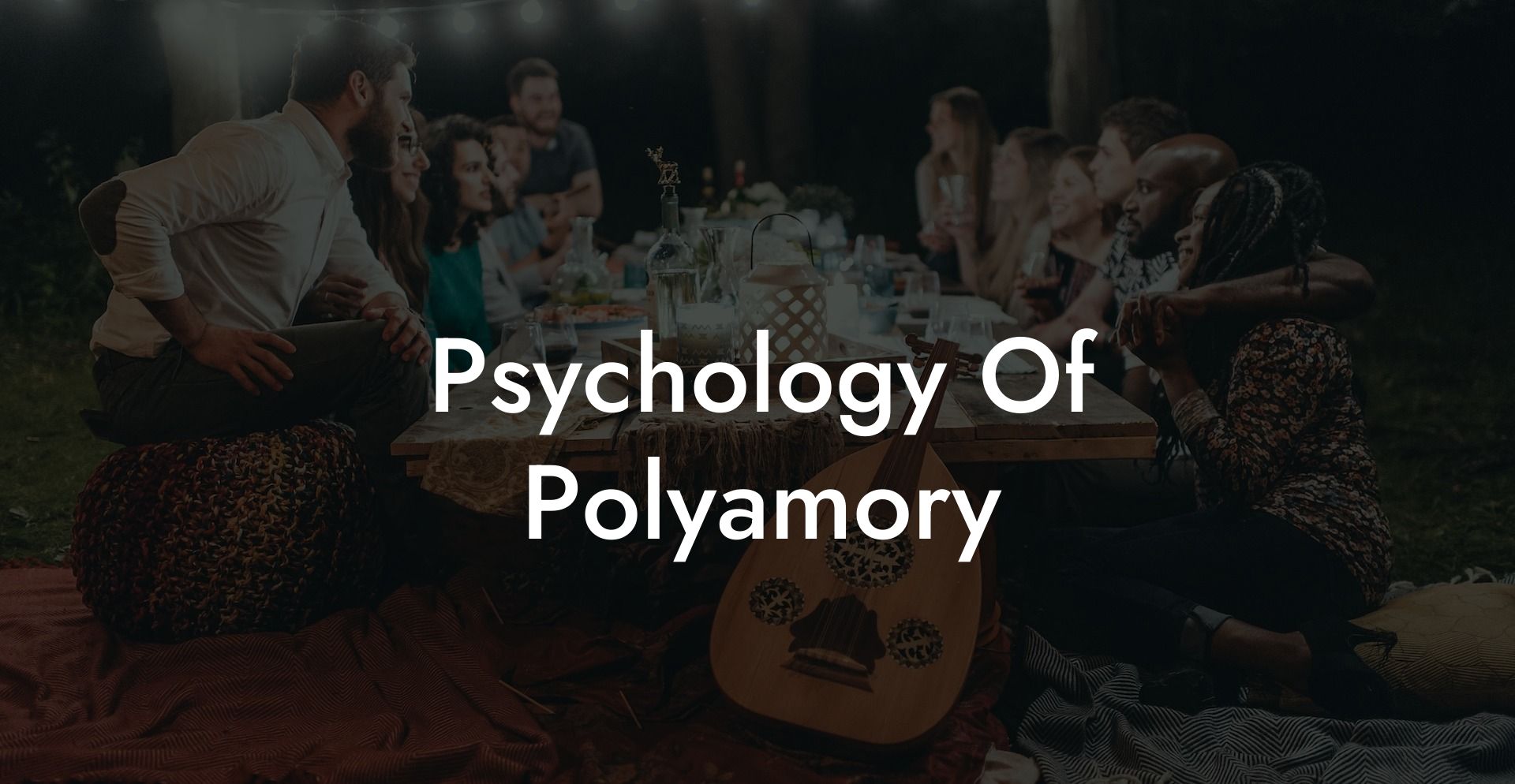Polyamory has gained significant attention over the past few years as more and more people become open and accepting of different relationship structures. But what exactly is polyamory, and what drives people to choose this lifestyle? In this article, we will delve into the psychology behind polyamory, exploring the reasons people engage in these relationships and what benefits they can provide.
Psychology Of Polyamory Table of Contents
Psychological Factors That Attract People to Polyamory
Defining Polyamory
Polyamory is the practice of engaging in multiple romantic relationships simultaneously, with the knowledge and consent of all partners involved. It is important to note that this is different from cheating or infidelity, as all parties are aware and consenting to the arrangement. Within polyamory, there are various structures and configurations, such as triads, quads, or even large networks of interconnected relationships.
Psychological Factors That Attract People to Polyamory
There are several psychological factors that contribute to a person's interest in polyamorous relationships. These may include:
Desire for Emotional and Physical Connections
- Some people find that a single partner cannot satisfy all their emotional and physical needs. Engaging in polyamory allows them to explore different connections and experiences with multiple partners.
Personal Growth and Self-Discovery
- Polyamorous relationships can provide opportunities for personal growth and self-discovery, as individuals learn to navigate an array of emotions, jealousy, and communication styles.
Fulfillment of Different Needs and Desires
- Being in multiple relationships allows people to have diverse experiences and satisfy a range of needs, such as emotional support, intellectual stimulation, and sexual exploration.
Freedom from Societal Norms
- For some, polyamory is a way of breaking free from societal norms and expectations regarding monogamous relationships, allowing them to create a relationship style that best suits their individual needs and desires.
Advantages of Polyamorous Relationships
In addition to satisfying various psychological factors, polyamorous relationships can provide several benefits. These may include:
Enhanced Communication Skills
- Polyamory requires strong communication skills and emotional intelligence, as partners must navigate complex emotions and effectively express their needs and boundaries.
Greater Emotional Support
- Having multiple partners can lead to increased emotional support, as individuals have access to a broader network of people who can provide care, comfort, and encouragement.
Expanded Social Network
- Polyamorous relationships often lead to an expanded social network, as individuals become connected to their partners' partners and other members of the polyamorous community.
Variety of Experiences and Perspectives
- Being in multiple relationships can expose individuals to a wide range of experiences and perspectives, promoting growth and self-awareness.
Challenges in Polyamorous Relationships
Despite the numerous advantages, polyamorous relationships also come with their own set of challenges. Some of these challenges may include:
Managing Time and Energy
- Maintaining multiple relationships can be time-consuming and emotionally draining, requiring careful planning and prioritization to ensure all partners receive the necessary attention and care.
Navigating Jealousy
- Jealousy can be a significant challenge in polyamorous relationships, as partners must learn to manage envy and strive for compersion – taking joy in their partners' happiness and experiences with others.
Managing Stigma and Misconceptions
- Despite growing acceptance, polyamory still faces societal stigma and misconceptions, which may put strain on relationships or make it difficult for individuals to openly discuss their lifestyle.
Psychology Of Polyamory Example:
For instance, let's consider a hypothetical example of a polyamorous triad consisting of Alice, Bob, and Carol. Alice is in a romantic relationship with both Bob and Carol, and Bob and Carol are also romantically involved with each other. The three of them navigate the complexities and joys of their polyamorous arrangement, learning to communicate effectively, share their time, and support each other through various challenges and successes. They have formed a unique bond and found a relationship structure that works best for their individual needs and desires.
In conclusion, polyamory is a complex and intriguing relationship style that can offer numerous psychological benefits and opportunities for growth and exploration. While it may not be for everyone, understanding the psychology behind polyamory can provide insight into the motivations and advantages of this unique lifestyle. If this article has sparked your interest and curiosity, we encourage you to share it with others and explore more of the fascinating guides available on The Monogamy Experiment.













